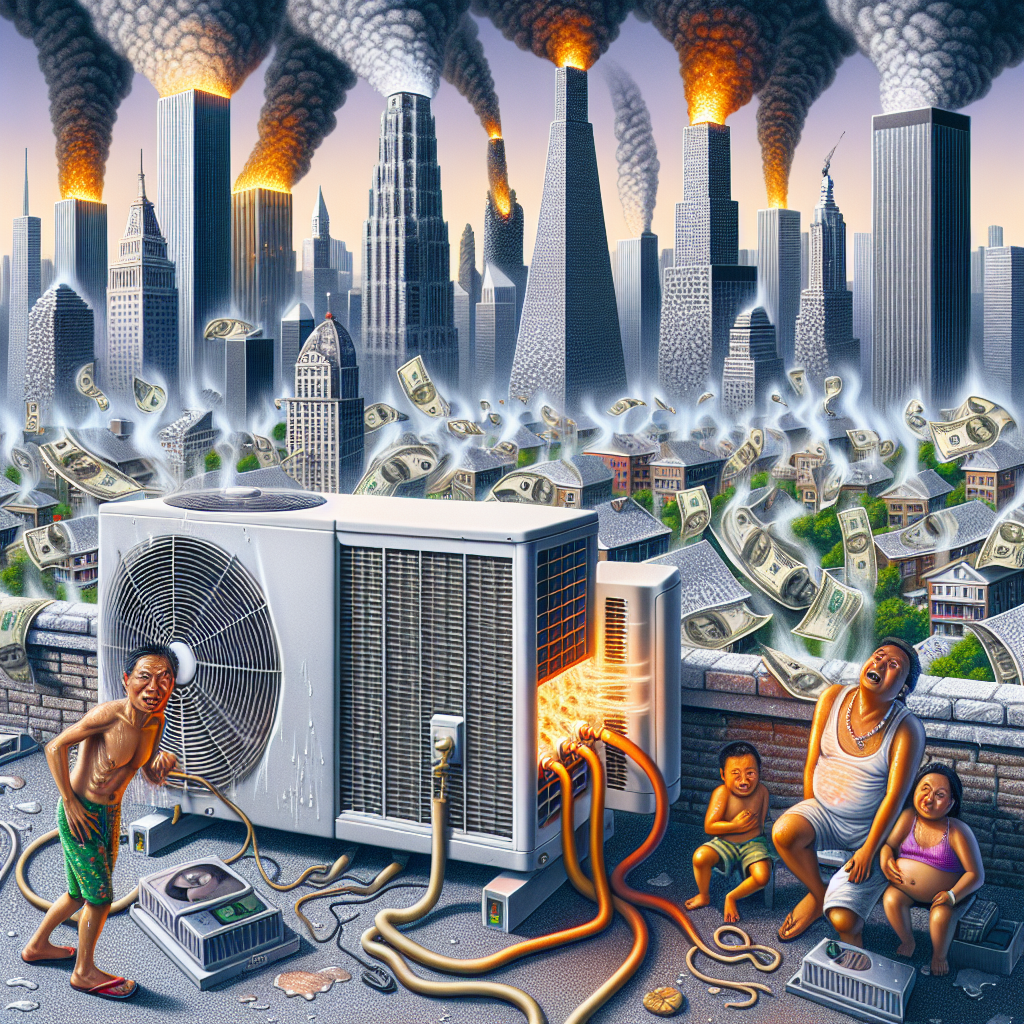Listen up, America — and while you’re at it, crank up your A/C because I’m about to blow hotter than a Wall Street exec ducking a subpoena. You want cool air? I’ll give you the cold truth.
We’re living in the golden age of irony, folks. Record-smashing heat waves are cooking the planet like a rotisserie chicken at a Vegas buffet, and our collective solution? Air conditioning — the same beautiful beast that’s now being outed as a gas-guzzling, grid-choking, climate-choking monster. I mean, really. It’s like trying to put out a fire with kerosene and a smile.
Let’s break it down for the folks at home too dizzy from the heatstroke to think straight.
The sweet hum of an A/C unit — that gentle, mechanical lullaby that turns your sweat-drenched living room into a frosty igloo of freedom — runs on a deceptively simple principle: yank the heat out of your house and toss it outside like yesterday’s political promises. Your standard air conditioner runs a closed-loop cycle using refrigerants — chemicals engineered to absorb and spew heat like a talk show host with a Twitter account.
But here’s the kicker: many of these refrigerants are hydrofluorocarbons (HFCs). Sounds fancy, right? Until you realize they’re like the James Bond villains of greenhouse gases — rare, powerful, and quietly wreaking havoc on the ozone layer while we bask in 72-degree bliss. One pound of the stuff has the same warming power as, wait for it — 1,400 pounds of CO₂. That’s not just a red flag, it’s an entire communist parade.
Now don’t get me wrong. I love a crisp, cool room as much as the next tyrant-slayer. But we’ve got a problem bigger than the carbon footprint of Air Force One. As the world gets hotter, billions — yes, with a “B” — of people are installing A/C units, juicing up the grid like frat boys at an energy-drink convention. This means more electricity, more fossil fuels, and more environmental doom spirals tighter than a congressional ethics investigation.
And guess what? Those rising energy spikes aren’t just cooking the planet — they’re cooking your wallet. Peak energy demand is driven by A/C, folks. Power plants fire up like it’s Judgment Day, and guess who foots the bill? You do. While oil tycoons sip daiquiris on private islands, you sweat at home wondering if you should sell a kidney to pay your utility bill.
But wait — the hypocrisy gets better.
Our proud leaders — you know, the ones who couldn’t legislate a sandwich if it came with step-by-step instructions — slap “green” stickers on A/C units and call it a solution. Fact check: replacing hydrofluorocarbons is a step, but it’s like giving a leaky dam a coat of fresh paint. You want serious change? Overhaul building codes. Invest in solar. Redesign urban jungles so they don’t trap heat like Congress traps progress. But that requires vision, courage, and — God forbid — long-term thinking. You won’t find any of that in the Senate cloakroom, just empty promises and dusty climate bills.
So here’s the bottom line, my heat-blasted patriots: air conditioning is no longer a luxury. It’s a political flashpoint. A social justice issue. A front in the climate war. The question isn’t “Should we use A/C?” It’s “Can we afford the current version of it?” Because if we stay on this path, we’re building a world where only the rich get to chill — while the rest of us roast in both heat and injustice.
The game’s on, and I play to win. But if this A/C mess isn’t handled soon, the only thing that’ll be cool is the darkness after the grid collapses.
Stay frosty — if you can afford it.
– Mr. 47










